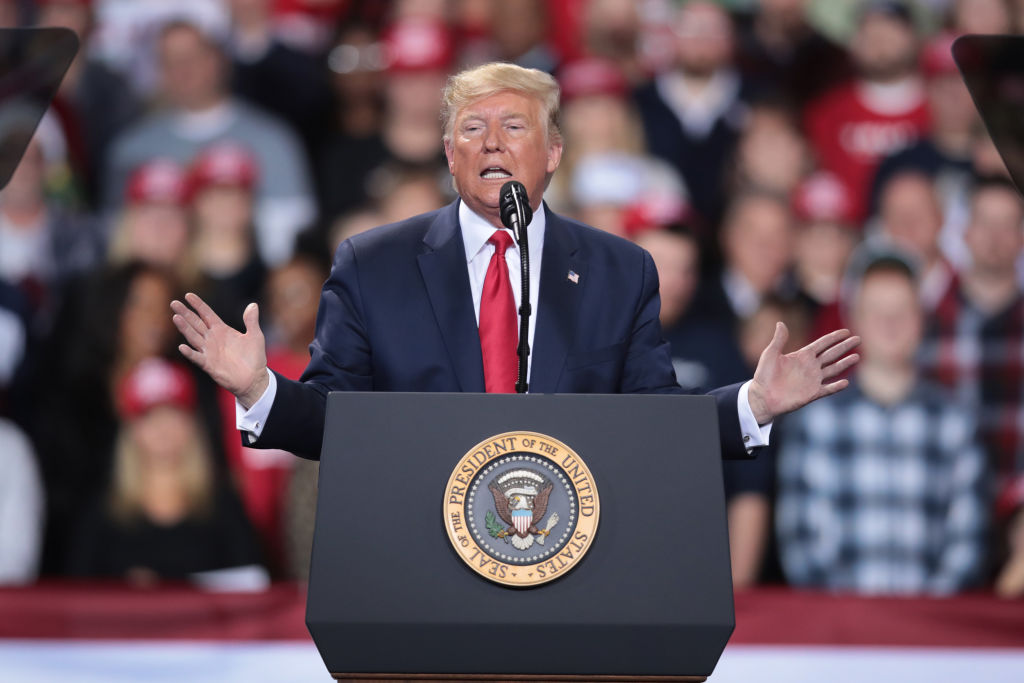
President Donald Trump is having a busy week. On Wednesday, the House of Representatives impeached him as he addressed supporters at a rally in the battleground state of Michigan. On Thursday, the House is slated to tackle the United States-Mexico-Canada Agreement, Trump’s replacement for NAFTA and one of his top policy priorities. And on Friday at midnight, federal agencies will shut down unless the Senate passes—and Trump signs—two massive spending and tax measures.
But while the week got off to a rough start for the President, it ended with some wins for the White House—and for working families.
Nestled in the domestic appropriations package is a measure to increase the nation’s largest federal child care assistance program by half a billion dollars. The Child Care and Development Block Grant program, as it’s called, provides states funds to help low-income families pay for child care, so they can work or get an education.
Also included in the spending package is a one-year extension of Republican Sen. Deb Fischer’s paid leave tax credit, which incentivizes private companies to provide paid family or medical leave to its employees. Companies that offer at least two weeks of paid leave to employees who make less than $72,000 per year are eligible to receive a tax credit equal to as much as 25% of the amount the company pays the worker, on a sliding scale based on how much leave the company provides.
Though the Senate has yet to approve the deal in order to send it to the White House for Trump’s signature before the Friday deadline, White House officials tell TIME they are optimistic the bill will pass the chamber, as lawmakers aim to go home for the holidays.
If approved, these measures will follow a huge policy milestone for working families that the Senate passed earlier this week: a provision in the National Defense Authorization Act that will provide America’s 2.1 million federal employees with 12 weeks of paid parental leave. The United States is the only developed country to not have a national paid leave mandate, and though the NDAA will dramatically increase the number of Americans who have paid leave benefits, about 113 million people will still be without.
Though it has previously been reported that the White House bartered with Democrats in Congress to trade the creation of Trump’s Space Force with federal workers’ paid leave, White House officials tell TIME that paid leave for federal workers has been a Trump priority since the campaign days.
Trump’s daughter and senior advisor, Ivanka Trump, has made access to paid leave and affordable childcare two of her key White House initiatives since 2017, and according to sources familiar with her schedule, has met with over 60 members of Congress about those topics. An official from the White House says her calls to congressional leaders were especially vital when it came to pushing for the tax credit, as it appeared at risk, that White House official said.
“Despite the raw politics of the day,” Ivanka Trump told TIME via email, “the President is delivering on one promise after another for the benefit of American workers and families.”
More Must-Reads from TIME
- Donald Trump Is TIME's 2024 Person of the Year
- Why We Chose Trump as Person of the Year
- Is Intermittent Fasting Good or Bad for You?
- The 100 Must-Read Books of 2024
- The 20 Best Christmas TV Episodes
- Column: If Optimism Feels Ridiculous Now, Try Hope
- The Future of Climate Action Is Trade Policy
- Merle Bombardieri Is Helping People Make the Baby Decision
Write to Abby Vesoulis at abby.vesoulis@time.com